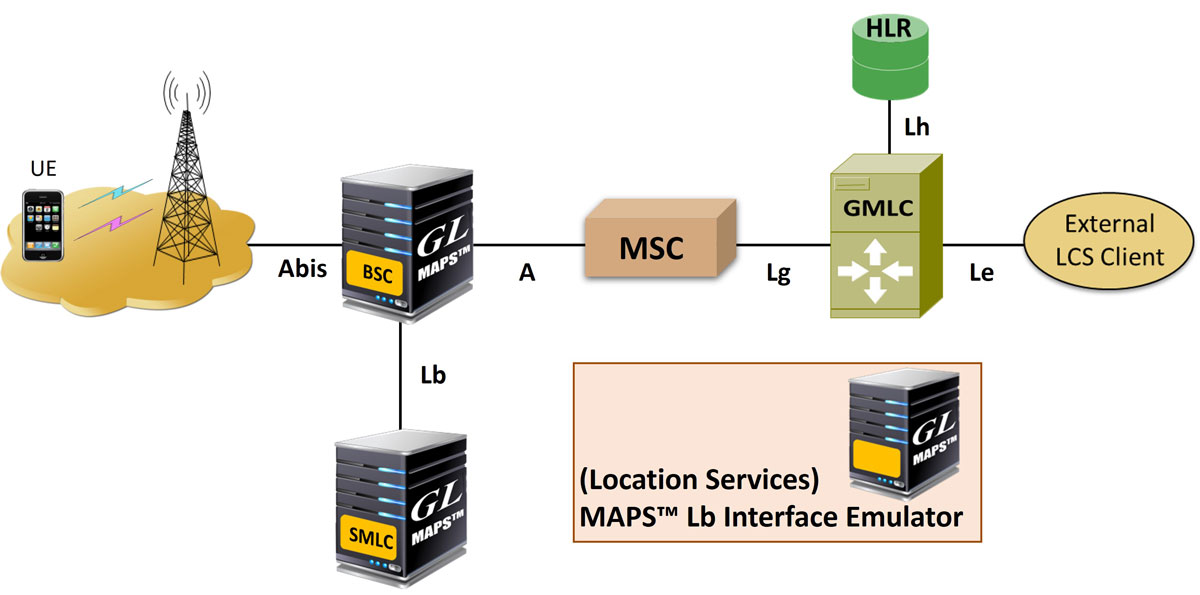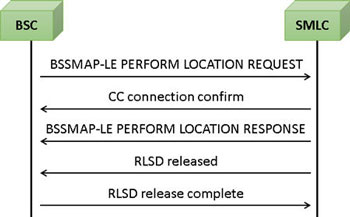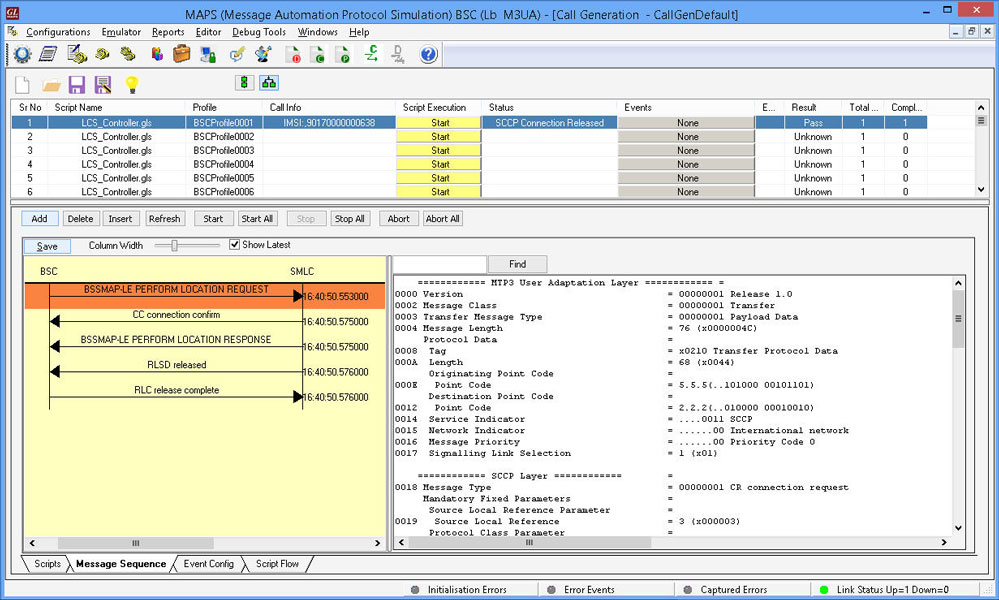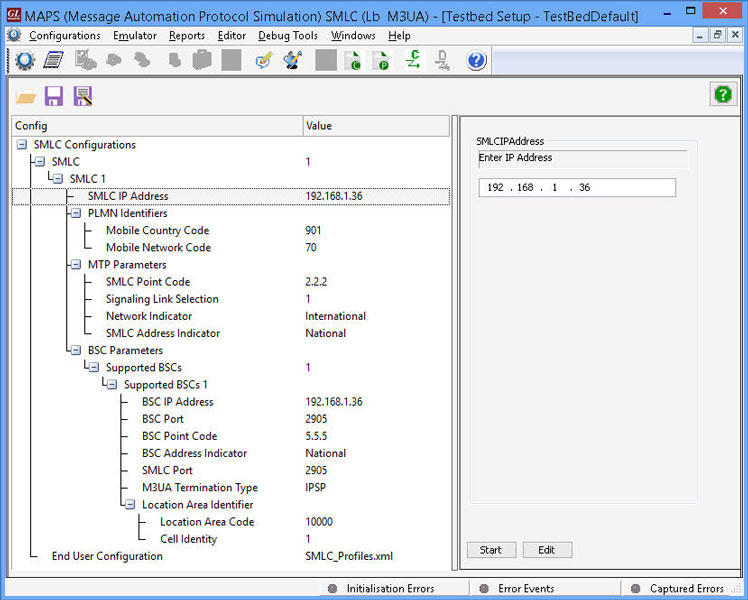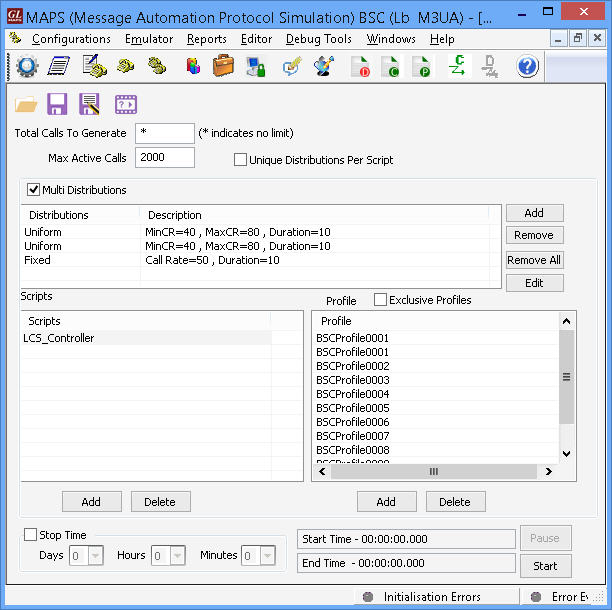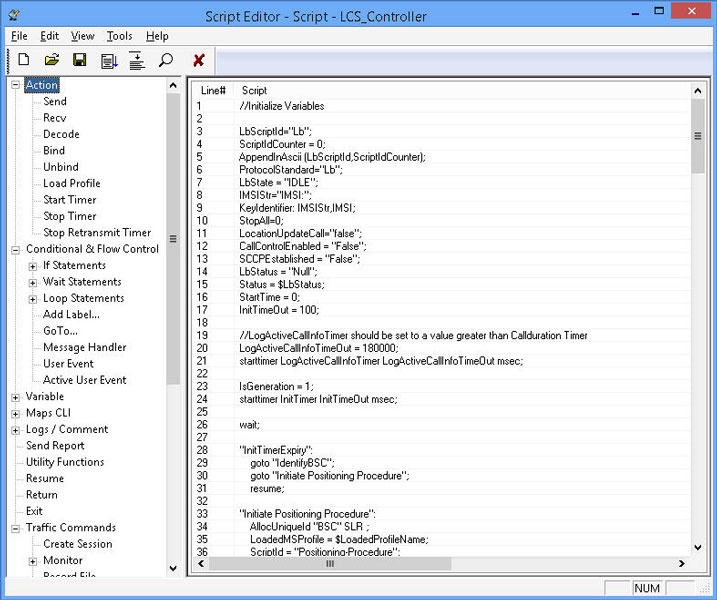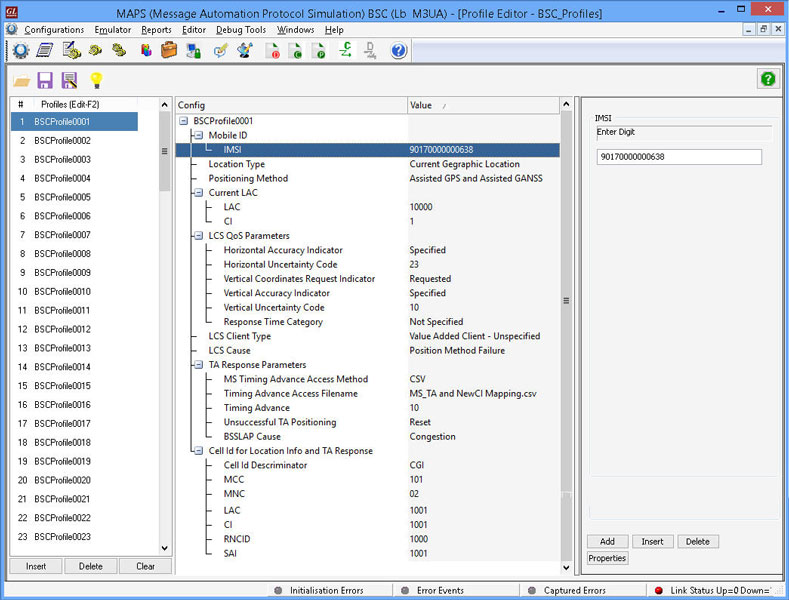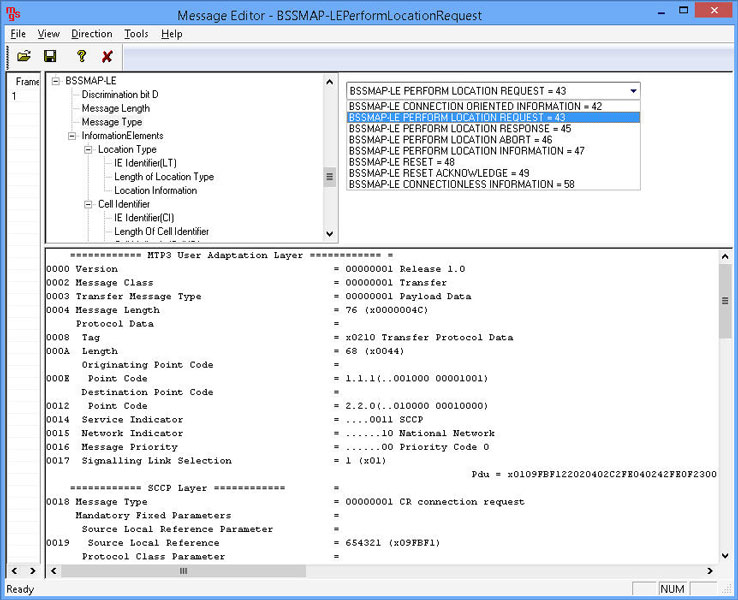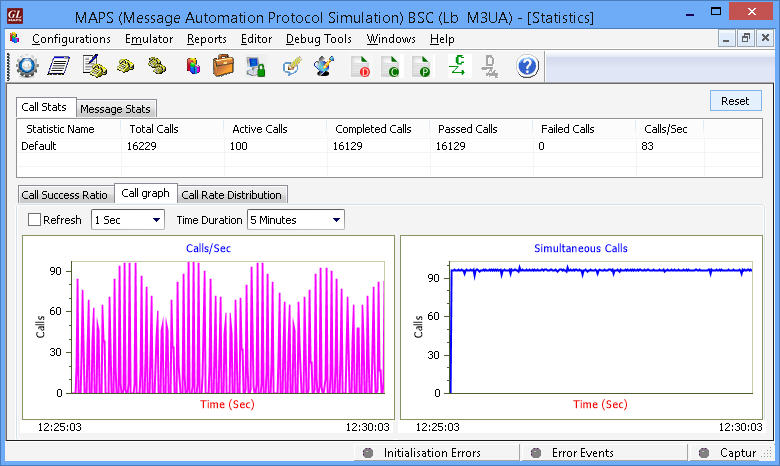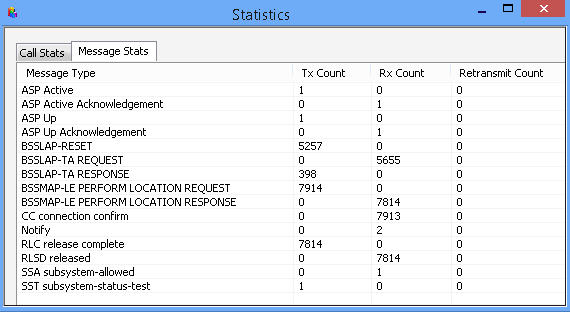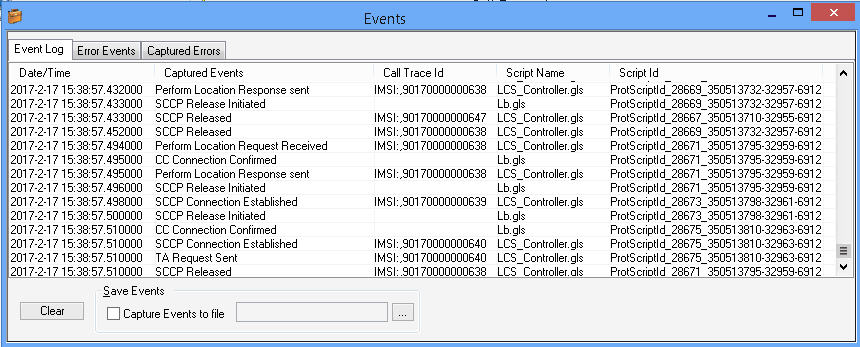MAPS™ Lb Interface Emulator
Simulation of location services on the GSM Lb interface between SMLC (Serving Mobile Location Center) and BSC (Base Station Center) network elements.
Brochure Request a Demo / QuoteBackground
Accurate location services find its use in many public operations such as emergency services, vehicle tracking, stolen assets tracking, advertising, and social networking. Location Service is used to estimate the geographic location of an Mobile Station (MS) and/or valid Mobile Equipment (ME), expressed in latitude and longitude, represented in a well-defined universal format. Location Services (LCS) architecture follows a client/server model with a positioning node acting as the server providing information to external LSC clients.
In the LCS network, GMLC (Gateway Mobile Location Center) is the positioning node and Center point of the architecture that holds the position information by communicating with other network elements within the network. All LCS clients communicates with this node to request positioning information. Additionally, GSM network includes separate nodes, Service Mobile Location Center (SMLC) that resides within BSC and Location Measurements Units (LMU) that resides within BS, for calculating and updating the location measurements.
The functions of SMLC are as listed below –
The BSC is accessible to the SMLC via the Lb interface. Receive location requests from MSC and send corresponding location results back to MSC via BSC.
Obtain measurement results from LMUs and from Target MS via E-OTD and A-GPS positioning methods. In the absence of certain information elements, the SMLC shall perform only network based positioning methods (e.g. TA and U-TDOA, but not GPS or E-OTD). Different positioning methods are discussed in greater details in this link.
BSSAP-LE is an extension to BSSAP signaling that contains messages and parameters specific to support LCS over M3UA/SCTP and SCCP in Lb interface of Geran.
Overview
Message Automation and Protocol Simulation (MAPS™) test suite is enhanced to support simulation of location services on the SMLC <-> BSS Lb interface. MAPS™ Lb interface emulator simulates network elements such as the SMLC (Serving Mobile Location Center) and BSC (Base Station Center), as defined in 3GPP TS 49.031 specifications.
The application is available as
MAPS™ Lb (Item # PKS147) for GSM Lb interface in LCS network.
MAPS™ Lb supports BSSMAP-LE message exchange between BSS and SMLC as per 3GPP TS 49.031 specification and BSSLAP message exchange as per 3GPP TS 48.071 specification. The Lb interface, is transparent to all UE related and LMU (Location Measurement Utility) related positioning procedures.
MAPS™ Lb supports Base Station System Application Part LCS Extension (BSSAP-LE) procedures, which are divided as follows:
- Location Service Request
- Location information exchange procedure
- Timing Advance (TA) Positioning Procedure
BSS Application Part (BSSAP) protocol is a functional part of SCCP handling the messaging between BSS and MSC. BSSAP-LE is an extension to BSSAP that contains messages and parameters specific to support LCS over M3UA/SCTP and SCCP in Lb interface of Geran.
Typically, BSS initiates location service request to obtain the location estimate for a target MS. When location estimate is requested, the SMLC performs positioning of the target MS using a particular position method or a combination of more than one positioning methods. In the absence of certain information elements, the SMLC shall perform only network based positioning methods (e.g. TA and U-TDOA but not GPS or E-OTD). If it obtains the location information, the SMLC shall return a BSSMAP-LE Perform Location Response to the initiator of the location request.
MAPS™ also supports simulation of other entities and interfaces indicated in Location Services architecture with the following MAPS™ suite for LCS - MAPS™ SLh between GMLC and HSS, MAPS™ SLg between GMLC and MME, MAPS™ Lg between GMLC and MSC, MAPS™ Lh between GMLC and HLR, and MAPS™ SLs between E-SMLC and MME.
Main Features
- Useful tool to perform Location services testing over BSC <-> SMLC Lb interface
- Emulator can be configured as BSC, SMLC nodes and study the call flow and exchange of signaling messages between any of these nodes
- User-friendly GUI for BSSAP LCS Extension (BSSAP-LE) message exchange over M3UA/SCTP and SCCP
- Ready scripts for BSSAP-LE procedures –
- Connection Oriented Location Service Request procedure
- Connection Oriented Location Information Transfer procedure
- TA (Timing Advance) Positioning procedure
- Provides protocol trace with full message decoding of the BSSAP messages.
Supported Protocols Standards
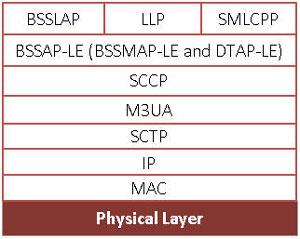
Lb Protocol Stack |
Supported Protocols | Standard / Specification Used |
|---|---|---|
| BSSLAP | 3GPP TS 48.071 | |
| BSSMAP-LE | 3GPP TS 49.031 | |
| SCCP | Q.713, CCITT (ITU-T) Blue Book | |
| SCTP | RFC 4960 |
Lb Interface Procedures
Location Request Procedure
The following illustrates the location request procedure over GSM Lb interface between BSC and SMLC. Transfer of BSSMAP-LE messages using an SCCP connection to support positioning of a target MS, is as shown in the figure below.
MAPS™ Lb interface emulator can be configured as BSC (Base Station Center) to initiate the procedure by sending a BSSMAP-LE Perform Location Request message to the SMLC to obtain the location estimate for a target MS. The procedure makes use of SCCP connection oriented signaling on the Lb interface.
Screenshots
Resources
Please Note: The XX in the Item No. refers to the hardware platform, listed at the bottom of the Buyer's Guide, which the software will be running on. Therefore, XX can either be ETA or EEA (Octal/Quad Boards), PTA or PEA (tProbe Units), XUT or XUE (Dual PCIe Express) depending upon the hardware.
| Item No. | Item Description |
| PKS147 | MAPS™ Lb Interface Emulator |
